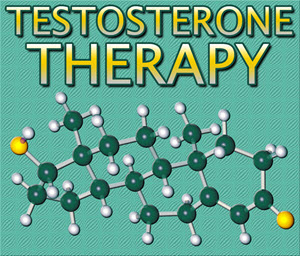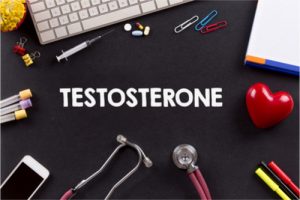 Hormone Balance is the key to maintaining and facilitating optimal wellness.
Hormone Balance is the key to maintaining and facilitating optimal wellness.
The way that our hormones work is highly complex.
When we discuss Testosterone, Estrogen, or Human Growth Hormone Production, this is a short-hand for an entire branch of highly-interconnected processes that lead to the production of a vital hormone. Hormone Replacement Therapy tends to revolve around the replacement of the vital hormone which provides the broadest range of benefits.
Video Link: https://vimeo.com/290608149
Video Download: Click Here To Download Video
Video Stream: Click Here To Stream Video
For example, HGH and Testosterone are both further processed into metabolites which offer the full range of benefits associated with the hormones. The goal of this article is to explain the role of Sex Hormone-Binding Globulin (SHBG) in the function and utilization of Testosterone.
How Does the Body Make Testosterone?
Sex Hormone Production begins in the hypothalamus — the control center of the 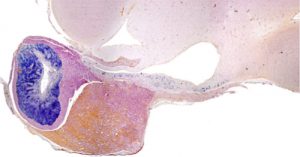 brain. The Hypothalamus receives signals from the body to produce Testosterone or Estrogen, and sex hormone precursors are released.
brain. The Hypothalamus receives signals from the body to produce Testosterone or Estrogen, and sex hormone precursors are released.
Gonadotropin-Releasing Hormone is issued by the Hypothalamus, where it then travels to the Pituitary.
The Pituitary Gland responds to this stimulation by releasing Luteinizing Hormone and Follicle-Stimulating Hormone, which then travel to the sex organs, promoting normal function in both men and women.
For men, Testosterone Production is triggered primarily by Luteinizing Hormone, which triggers interstitial cells in the Testes and Adrenal Glands to produce Testosterone.
What is the Importance of Sex Hormone-Binding Globulin?
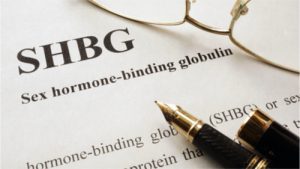 After Testosterone is produced, it is then distributed throughout the body via Sex hormone-binding Globulin.
After Testosterone is produced, it is then distributed throughout the body via Sex hormone-binding Globulin.
SHBG is responsible for binding to Estrogen, Testosterone, and Dihydrotestosterone (DHT), so that they can perform their essential duties. SHBG is secreted by the liver and is responsible for controlling the level of these hormones that remain unbound in the bloodstream.
SHBG is incredibly essential, but when it is present in concentrations that are too high, it depletes existing reserves of Free Testosterone.
Though SHBG helps distribute these hormones, unbound Testosterone is the reactive form that benefits the human body. SHBG production is highly correlated with Cortisol Levels in the blood.
Cortisol is the body's primary stress hormone. It helps us wake up in the 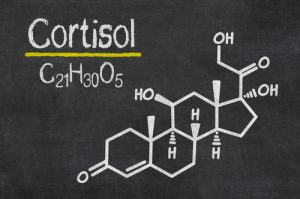 morning, and it also increases dramatically in times of stress, triggering the fight-or-flight response.
morning, and it also increases dramatically in times of stress, triggering the fight-or-flight response.
Perhaps as a result of our highly evolved brains, we are prone to a condition known as Chronic Stress.
In the case of Chronic Stress, the body releases consistently elevated levels of Cortisol, which has a profoundly adverse effect on human physiology.
Since Cortisol causes Free Testosterone Levels to drop, it is associated with impaired metabolism and anabolism, meaning that it makes it both easier to gain weight and harder to lose muscle.
SHBG Sequesters Testosterone
Though SHBG plays an integral role in hormone maintenance, when Hormone Levels fall out of balance, either due to stress, age, or other factors, this harms your body's ability to utilize sufficient Testosterone to maximize health and vitality.
Because SHBG plays such a dominant role in Testosterone utilization, it's vital to test Free Testosterone, Total Testosterone, and SHBG Concentrations when evaluating for Low-T.
Total Testosterone is the combination of Bound Testosterone and Free Testosterone, which measure the amount of Testosterone present in the bloodstream, whereas Free Testosterone reveals the amount of Testosterone actively available for your body to use.
If you have elevated SHBG Levels, this is a strong suggestion that your Testosterone-Related Issues are the result of underlying factors such as depression, anxiety, and stress.
Under most circumstances, SHBG Levels are antagonistic to Free Testosterone Levels — The more SHBG in the bloodstream, the less Free Testosterone.
Having Low Levels of Free Testosterone is just as bad as having low levels of Total Testosterone, meaning that your libido, cognitive focus, energy levels, and metabolism are highly at risk. SHBG can even provide insight into the effectiveness of your body's insulin production!
What is Unbound Hormones?
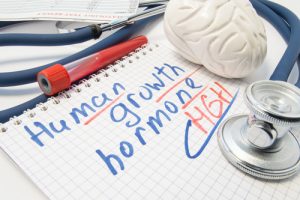 Another term for Free Testosterone is Unbound Testosterone.
Another term for Free Testosterone is Unbound Testosterone.
Most hormones are affected by transport hormones in the bloodstream, which means that there are both Unbound and Bound Hormones in the blood at any given time.
There has been a significant shift in how we understand Testosterone over the last generation, leading to an increased emphasis on evaluating SHBG Levels and how they impact the overall physiological activity. Sometimes this means that Testosterone Replacement Therapy isn't necessary.
Other times this means that Low-T Treatment is modified as a result of the impact of SHBG.
The most important thing that has changed is that Hormone Clinics and HRT Specialists recognize that healthy Total Testosterone Levels don't tell the whole story.
In fact, Low Levels of SHBG aren't ideal either, because they could be indicative of other issues such as Insulin Resistance and Diabetes. As is valid with any hormone, neither elevated nor suppressed Hormones are healthy.
What's important is to strike a balance in the normal range, also known as the Goldilocks Zone. Not too High; Not too Low — Just Right.
What Causes Elevated SHBG Levels in Men?
 As we mentioned earlier, there are a wide variety of factors that can lead to increased SHBG Levels and impaired Testosterone Activity. The following is a brief list:
As we mentioned earlier, there are a wide variety of factors that can lead to increased SHBG Levels and impaired Testosterone Activity. The following is a brief list:
- Testicular Cancer
- Liver Detox due to heavy metals, alcohol, medication, etc.
- Rapid Weight Loss
- Hyperthyroidism
- Elevated Estrogen Levels in Men
- Cirrhosis of the Liver
- Aging
What Leads to Suppressed SHBG Levels in Men?
- Testosterone Overdose
- Elevated Prolactin Levels
- Insulin Resistance/Diabetes
- Hypothyroidism
What Elevates SHBG Levels in Women?
- Elevated Estrogen/Phytoestrogen Levels
- Stress
- Pregnancy
- Liver Detox
- Hyperthyroidism
- Some Medications
- Smoking
- Anorexia
- Birth Control Pills
- Cirrhosis
- High Testosterone Levels
What Suppresses SHBG Levels in Women?
- Hypothyroidism
- Elevated Testosterone Levels
- High Levels of Prolactin in the Blood Stream
- Polycystic Ovarian Syndrome
- Pre-Diabetes/Diabetes
How Can We Use Our Knowledge of SHBG Levels to Improve HRT Treatment Options?
 As you can see, there are a wide variety of factors that impact SHBG Levels, and these factors are also largely dependent on the gender of the patient.
As you can see, there are a wide variety of factors that impact SHBG Levels, and these factors are also largely dependent on the gender of the patient.
For men, assessing SHBG Levels is one of many pieces of the puzzle that represents your Hormone Balance. When evaluating your SHBG Levels, your doctor will use this as a starting point to pinpoint the specific issues which are negatively impacting your Testosterone Activity.
If SHBG Levels are ignored, this can hurt your treatment, leading to side effects associated with Elevated Testosterone Levels, poor results, or masking of the underlying health issue which is causing your Hormone Imbalance in the first place, which can be dangerous or even deadly.
How Does Stress Affect SHBG Levels?
A patient's stress levels have a powerful impact on SHBG Levels and therefore  affect Free Testosterone. As mentioned, chronic stress leads to an influx of Cortisol, which also causes SHBG Levels to skyrocket.
affect Free Testosterone. As mentioned, chronic stress leads to an influx of Cortisol, which also causes SHBG Levels to skyrocket.
When SHBG Production increases for an extended period due to Chronic Stress, Free Testosterone Levels can fall to such an extent that it mimics the symptoms of Testosterone Deficiency. Bio-Identical Low-T Therapy can benefit the patient, but does not resolve the underlying stress, and would not be the appropriate form of treatment in this case.
SHBG Affects Men and Women Differently
Because women produce much less Testosterone than men (around 1/10th as much of the hormone), they are much more sensitive to changes in SHBG concentration and the effects of Low-T.
It's especially crucial for women to have both Free and Total Testosterone Levels checked because they are particularly susceptible to Low Free Testosterone resulting from the influence of SHBG.
Many physicians neglect to check Free Testosterone Levels, which is why you should work with a qualified, reputable HRT Clinic.
SHBG as a Diabetes Signifier
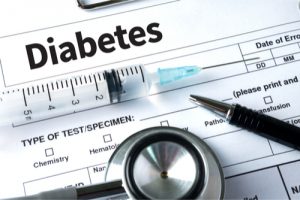 Perhaps contrary to what you would believe, Diabetes has a suppressive effect upon SHBG Levels.
Perhaps contrary to what you would believe, Diabetes has a suppressive effect upon SHBG Levels.
The hormonal changes associated with Diabetes cause SHBG Levels to plummet, whereas cortisol causes SHBG Levels to rise. This does not lead to increased Testosterone Levels; however, as Diabetes also causes Total Testosterone Levels to drop dramatically.
Serum SHBG can also be used as a predictive tool because recent studies have shown that patients with abnormally low SHBG Levels are more likely to experience Diabetes in their lifetime.
This means that if a patient is not currently suffering from Diabetes, but does have Low SHBG Levels, they know to take steps to protect themselves from Diabetes.
Reference
Contact Us Today For A Free Consultation

- Testosterone for Women [Last Updated On: December 1st, 2023] [Originally Added On: December 29th, 2013]
- Testosterone Androgen [Last Updated On: December 11th, 2023] [Originally Added On: December 29th, 2013]
- Testosterone and Body Building [Last Updated On: December 14th, 2023] [Originally Added On: December 30th, 2013]
- Testosterone Levels [Last Updated On: December 6th, 2023] [Originally Added On: December 31st, 2013]
- Testosterone Gel, Cream, and the Testosterone Patch [Last Updated On: November 28th, 2023] [Originally Added On: December 31st, 2013]
- Buy Testosterone | Types of Testosterone Replacement Therapy Programs, Injections, Cream and Gel [Last Updated On: December 13th, 2023] [Originally Added On: December 31st, 2013]
- Buy Testosterone Injections Online, Testosterone Prescription for Low T, Testosterone Replacement Therapy [Last Updated On: October 16th, 2020] [Originally Added On: January 1st, 2014]
- Aging and Testosterone Replacement Therapy [Last Updated On: December 12th, 2023] [Originally Added On: January 3rd, 2014]
- What Causes Low Testosterone [Last Updated On: December 10th, 2023] [Originally Added On: January 7th, 2014]
- Hormone Levels in Men [Last Updated On: December 4th, 2023] [Originally Added On: January 12th, 2014]
- Hormone Level Testing [Last Updated On: November 29th, 2023] [Originally Added On: January 13th, 2014]
- Types of Testosterone Products and Delivery [Last Updated On: December 8th, 2023] [Originally Added On: January 22nd, 2014]
- Testosterone Therapy Helps Men with Low-T Ward Off Prostate Cancer [Last Updated On: May 29th, 2024] [Originally Added On: December 29th, 2019]
- The Importance of Dietary Fat for Testosterone Production [Last Updated On: July 8th, 2024] [Originally Added On: January 2nd, 2020]
- Testosterone Deficiency and Low-T at Epidemic Levels Among Men in the United States [Last Updated On: May 27th, 2024] [Originally Added On: May 17th, 2020]
- The Effects of Testosterone Therapy on Male Patients -- Who Should Use Testosterone? [Last Updated On: December 20th, 2023] [Originally Added On: June 16th, 2020]
- Does Ibuprofen Contribute to Low Testosterone? [Last Updated On: January 27th, 2024] [Originally Added On: June 20th, 2020]
- The Link Between Testosterone and Lower Rates of Autoimmune Diseases Among Men [Last Updated On: January 30th, 2024] [Originally Added On: June 21st, 2020]
- Weight Cycling and the Problem with Crash Dieting [Last Updated On: April 8th, 2024] [Originally Added On: July 30th, 2020]
- Reexamining Bio-Identical Testosterone Therapy [Last Updated On: June 18th, 2024] [Originally Added On: August 12th, 2020]
- Understanding how Muscle and Fat Impact Body Mass, Weight, and Health [Last Updated On: April 15th, 2024] [Originally Added On: August 25th, 2020]
- The Role of Nitric Oxide in Cancer Proliferation And Prevention [Last Updated On: May 3rd, 2024] [Originally Added On: August 26th, 2020]
- Understanding Heartburn in the 21st Century [Last Updated On: April 24th, 2024] [Originally Added On: August 28th, 2020]
- What is Erectile Dysfunction? [Last Updated On: April 20th, 2024] [Originally Added On: August 30th, 2020]
- Sermorelin Acetate Drug Information [Last Updated On: April 7th, 2024] [Originally Added On: August 31st, 2020]
- Exercise and Mental Health [Last Updated On: April 5th, 2024] [Originally Added On: September 1st, 2020]
- The Importance of Proteins, Carbs, and Fats [Last Updated On: March 11th, 2024] [Originally Added On: September 2nd, 2020]
- Low-T Treatment Before and After -- How Testosterone Therapy Improves Vitality [Last Updated On: April 9th, 2024] [Originally Added On: September 6th, 2020]
- Changes to LabCorp Guidelines for Low-T Diagnosis and How They Impact Your Treatment [Last Updated On: July 14th, 2024] [Originally Added On: September 22nd, 2020]
- The Effects of Testosterone on Asthma Prevalence Among Men and Women [Last Updated On: February 19th, 2024] [Originally Added On: October 6th, 2020]
- 7 Exercises to Elevate Testosterone Levels [Last Updated On: June 13th, 2024] [Originally Added On: October 10th, 2020]
- Vitamin A is Essential for Good Health - Are You Getting Enough ? [Last Updated On: April 16th, 2024] [Originally Added On: October 14th, 2020]
- Testosterone and Diet – How to Support Testosterone Levels with Healthy Eating [Last Updated On: June 7th, 2024] [Originally Added On: October 29th, 2020]
- The Significance of Telomeres in Stem Cell Treatments [Last Updated On: March 16th, 2024] [Originally Added On: November 27th, 2020]
- The Influence of Testosterone on Protective Mating Behaviors in Men [Last Updated On: January 25th, 2024] [Originally Added On: December 6th, 2020]
- The Role of Testosterone in Women's Health [Last Updated On: December 24th, 2023] [Originally Added On: December 7th, 2020]
- Testosterone Promotes Bone Health and Can Help Treat Osteoporosis [Last Updated On: February 15th, 2024] [Originally Added On: December 17th, 2020]
- The Relationship Between Testosterone and Cortisol [Last Updated On: April 2nd, 2024] [Originally Added On: December 19th, 2020]
- 12 Health Issues That Can Kill Libido and Limit Sexual Performance [Last Updated On: May 23rd, 2024] [Originally Added On: January 3rd, 2021]
- 4 Foods to Boost Your Testosterone Levels [Last Updated On: February 7th, 2024] [Originally Added On: January 4th, 2021]
- Low Testosterone Symptoms [Last Updated On: December 31st, 2023] [Originally Added On: January 7th, 2021]
- Is Male Menopause Real? The Science of Andropause [Last Updated On: January 15th, 2024] [Originally Added On: January 11th, 2021]
- Relieve Fatigue and Increase Energy with Testosterone Replacement Therapy [Last Updated On: January 16th, 2024] [Originally Added On: January 16th, 2021]
- How to Administer a Testosterone Injection -- Low-T Injection Guide [Last Updated On: February 28th, 2024] [Originally Added On: January 17th, 2021]
- Testosterone Levels Associated with Serotonin Activity in the Brain [Last Updated On: March 26th, 2024] [Originally Added On: January 19th, 2021]
- Grumpy Old Man Syndrome – Causes and Treatments [Last Updated On: June 8th, 2024] [Originally Added On: January 22nd, 2021]
- The Effects of Beer on Testosterone Production and Gynecomastia [Last Updated On: March 21st, 2024] [Originally Added On: January 30th, 2021]
- Testosterone Frequently Asked Questions [Last Updated On: February 6th, 2024] [Originally Added On: February 26th, 2021]
- Testosterone Supplements: Vitamin and Amino Acid Pills Versus Real Testosterone [Last Updated On: November 21st, 2024] [Originally Added On: March 1st, 2021]
- Testosterone Side Effects, Risks, Dangers and Negative Effects [Last Updated On: November 7th, 2024] [Originally Added On: March 2nd, 2021]
- Testosterone for Men [Last Updated On: February 20th, 2024] [Originally Added On: April 13th, 2021]
- Testosterone Testing [Last Updated On: November 9th, 2024] [Originally Added On: May 7th, 2021]
- Hormone Replacement Therapy: Commonly Asked Questions [Last Updated On: February 20th, 2024] [Originally Added On: June 16th, 2023]
Word Count: 1397










